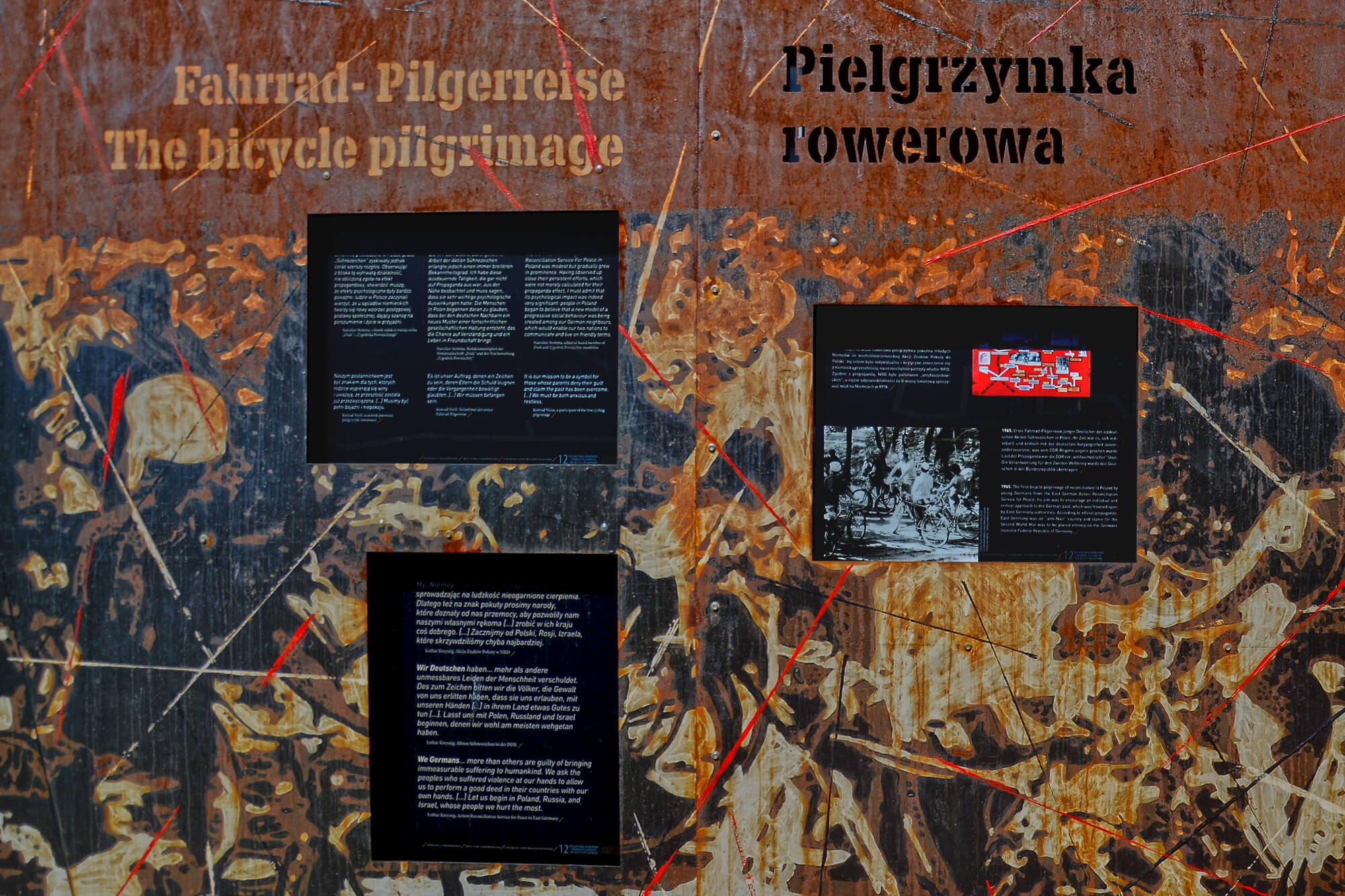Courage and
reconciliation
-
Action Reconciliation: founding and division
In 1958, the lawyer Lothar Kreyssig and the theologian Franz von Hammerstein founded the "Aktion Sühnezeichen“ (Action Reconciliation). In the founding proclamation Kreyssig asked young people to go for one year to one of the countries Germany caused the biggest harm to during World War II. This was meant as a plea for forgiveness and peace. With the ensuing petition he laid the foundation for Action Reconciliation. Action Reconciliation was founded as an all-German organization, but the construction of the Berlin Wall led to the division into two organizations with the same objective, but different concepts of volunteering-services, one in West Germany, the other one in East Germany.
-
Action Reconciliation Service for Peace and Kreisau
Franz von Hammerstein, an evangelic theologian and co-founder of the ARSP and Harald Poelchau, priest of a prison and member of the Kreisau Circle, together founded the Evangelische Industriejugend Berlin (Evangelic Industrial Youth Berlin) and the “Haus Kreisau”. The “Haus Kreisau” is a still functioning organization which promotes the memory of the Kreisau Circle and whose educational programme focuses on young apprentices. In 1989, Franz von Hammerstein became co-founder of the Kreisau-Initiative e.V. and a member of the Krzyzowa Foundation's Honorary Council.
-
The bicycle pilgrimage
In 1965, 20 young men from the GDR went by bicycle from Görlitz to the former Auschwitz concentration camp. During their pilgrimage they went to several former concentration camps, including Groß-Rosen located only 30 km from Kreisau. At the same time a group of young women went to the former Majdanek concentration camp. In these places the participants spent several days doing voluntary work. While the Polish media responded with disinterest, the reaction of the Polish catholic church to the bicycle pilgrimage was very enthusiastic. However, the GDR leadership was opposed to Action Reconciliation, because the government rejected any guilt of the GDR for the crimes committed during World War II by Germany.
In 2008, three of the participants repeated their journey accompanied by a camera team and produced the film “Leise gegen den Strom” (Quietly against the current).



